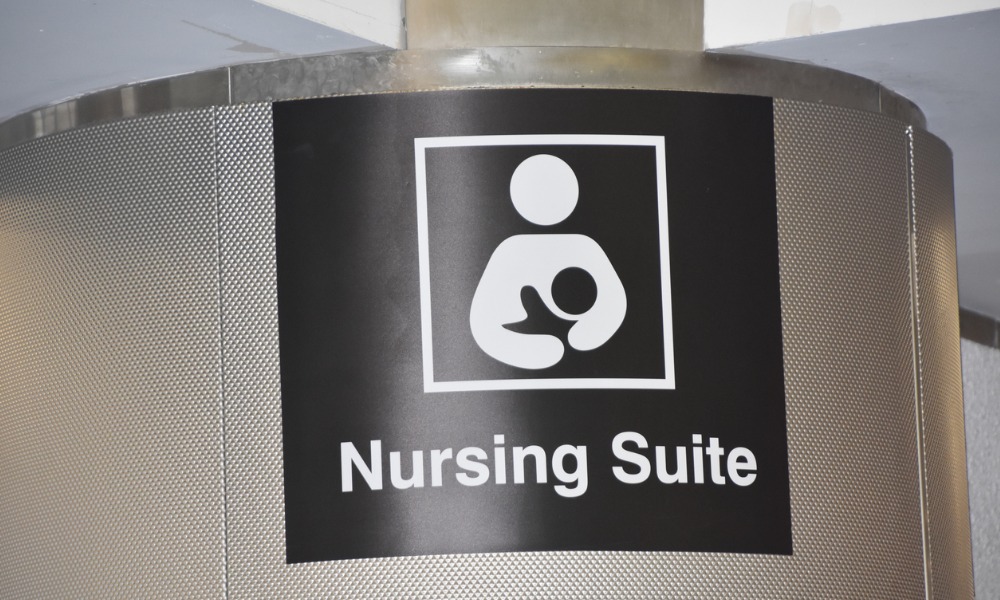
Employer's 'crucial role' starts with conversation during pregnancy, says expert

For new mothers, the decision to breastfeed or bottle-feed is a personal one, but those who chose to return to work and breastfeed at the same time are supported by legislation under New Zealand law.
The Employment Relations (Rest breaks, infant feeding and other matters) Amendment Act, which came into effect in New Zealand on April 1st, 2009, provides provisions for supporting breastfeeding women in paid employment.
This legislation enables mothers, where appropriate and reasonable, to have time during working hours to breastfeed or express their milk throughout the day in addition to their usual lunch and morning tea breaks.
However, despite legislation protecting the right to breastfeed at work, the reality for some new mothers in the Kiwi workforce is a different story.
A survey conducted by the Women’s Health Action uncovered some of the challenging experiences met by some juggling work and breastfeeding:
“I had to express in the toilets as there was no other suitable place. Every break I would rush upstairs to the loo to express and, if I could manage, have something to eat at the same time. I tried using a little room off the boss’s office but got walked in on, and a second time turfed out. I felt like no one really cared,” revealed one respondent.
Another said of their organisation, “They were not supportive at all. Did not want to provide me with suitable options… Male colleagues felt uncomfortable discussing the topic all together… I fought a fight not only for me but other colleagues also. It worked for a few weeks, but I then had to give up. If they had been more accommodating I (would have) continued breastfeeding longer”.
Carole Bartle, policy analyst and infant-feeding specialist at the New Zealand College of Midwives, told HRD, “Combining breastfeeding and employment can be difficult for women and employer support is important.”
“Prior to returning to work it is recommended that breastfeeding women think about and develop strategies on how they can best combine work and breastfeeding requirements, ideally in combination with their employers,” she said.
Supporting breastfeeding working mothers is not only beneficial for them and their infants but also contributes to a healthier workforce and substantial economic savings.
In a policy statement published in 2012, the American Academy of Pediatrics wrote “strategies that increase the number of women who breastfeed exclusively for about six months would be of great economic benefit on a national level.”
A detailed paediatric cost analysis conducted by the AAP concluded that if 90% of women in the United States breastfed exclusively for six months, there would be health savings of $13 billion per year.
These savings extend beyond healthcare costs and include reduced parental absenteeism and fewer adult diseases acquired in childhood, such as asthma and diabetes.
While the financial benefits are immense, Bartle highlights the importance of emotional well-being of working mothers and the role that employers can play in fostering a positive and inclusive atmosphere for them.
“Women who have planned to breastfeed, but for whatever reason have been unable to, are reported to be at the highest risk for postnatal depression. Knowing that a workplace will be supportive of breastfeeding on a return to the paid workforce can relieve anxiety about how breastfeeding and working can be managed,” she said.
The WHA survey also uncovered the benefits for employers who do support their working mothers, such as being able to promote their business as family friendly to attract staff, or retaining employees who would otherwise leave because of family obligations, which in turn saves employers money on recruiting and training new employees.
One survey respondent who had a positive experience with breastfeeding at their organisation wrote, “I expressed milk sometimes up to three times a day at work for three months. My male manager was more than happy for me to use his office. I believe that I wouldn’t have lasted that long without the support of my employer.”
Employers can make a significant difference by providing the necessary support and accommodations.
“Employers can play a crucial role in supporting breastfeeding employees,” said Bartle. “It starts with a conversation between the employee and employer during pregnancy to plan a strategy.”
A good place to start is this checklist provided by the NZ College of Midwives
The employer is responsible for performing a risk assessment covering the impact of any workplace hazards – which is relevant for pregnant women, and also breastfeeding women returning to the paid workforce.
To mitigate workplace hazards, employers should: